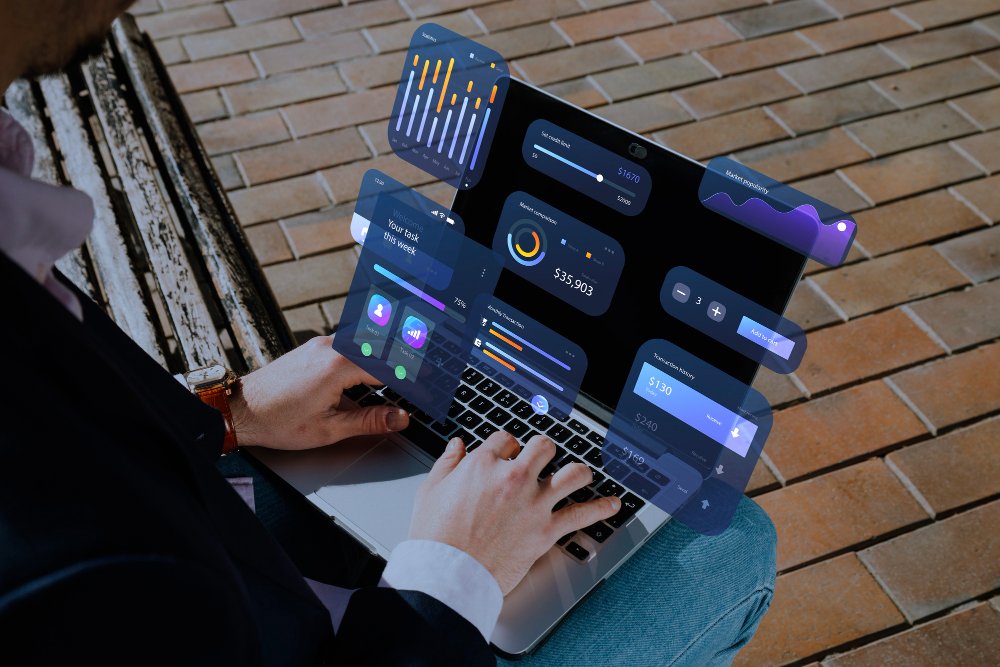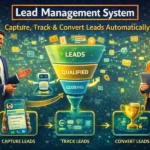AI-Powered CRM Trends 2026: What Indian Companies Need to Know
05 Mar, 2026
India’s sales landscape is changing faster than most businesses realize....
Updated: 24th July, 2025

People don’t have time to wait around for help. If they reach out to a business, they want a quick reply—without being passed from one channel to another or repeating the same thing five times. But that’s exactly what happens when companies use old, disconnected systems. It’s annoying—and customers notice.
That’s why businesses are moving to omnichannel CRM. It brings everything—emails, WhatsApp chats, calls, live messages, even DMs—into one view. So instead of jumping between tools, support teams can just focus on helping people. It’s faster, it feels more personal, and customers appreciate it.
You know what really makes a difference? When the conversation just flows. No missing info, no jumping between apps, no “let me explain this again” moments. Everything’s right there, connected.
Picture this: a customer sends a message on WhatsApp, follows up later with an email, and then calls to check what’s going on. In a typical support setup, those three conversations could land in three different places—handled by different people, with no real connection between them. Confusing, right?
Now, with an omnichannel CRM, it’s a whole different story. All those interactions—regardless of where they happen—get pulled into one clear timeline under the customer’s profile. So when a support agent jumps in, they can see the full conversation history at a glance. No need to ask, “Can you explain the issue again?”
The result? Faster answers, less back-and-forth, and a much better experience for the customer.
Today’s customers don’t all stick to one channel. Some shoot over an email, others prefer WhatsApp, and plenty still want to talk over the phone. And honestly, businesses need to be ready for all of it. That’s where an omnichannel CRM really shines—it helps you meet customers where they are, not where it’s most convenient for you.
➤ Email? All in One Place:
No more jumping between inboxes. With the CRM, agents can read and reply to emails right from the system. Every message is saved under the customer’s profile, so nothing gets lost—and no one has to ask, “Can you forward that again?”
➤ WhatsApp? Handled Smoothly:
Thanks to WhatsApp Business API, agents can chat with customers just like they would on their phones—except it’s all done through the CRM. It feels personal, stays organized, and makes follow-ups a breeze.
➤ Phone Calls? You’re Covered:
The moment a customer calls, your team’s not scrambling to figure out who they are. The agent sees everything right away—who’s calling, what they’ve talked about before, any open issues, even their last order. It’s all there, right on the screen, before they even say “hello.”
Everything’s right there, ready to go. No digging around. The CRM takes care of logging the call and saving any notes, so nothing slips through the cracks.
And honestly, that’s the real game-changer. It doesn’t matter if a customer shoots over an email, drops a message on WhatsApp, or gives you a call—you’re already on it. No mix-ups, no waiting around. Just quick, seamless support that shows you’ve been listening the whole time.
When all your customer chats and messages are in one place, helping them just feels a whole lot easier—and way more personal.
Say a customer emailed last week about a delayed delivery, and now they’re messaging on WhatsApp about a billing issue. With everything connected, the support agent can see the whole story—no guesswork. That kind of context lets them respond with a bit more understanding and offer a solution that fits.
And the customer? They feel seen and heard—like someone cares, not like they’re just another number in the system.
Switching between a bunch of tools just to reply to one customer? That gets tiring fast—and honestly, it just slows everything down.
That’s why using an omnichannel CRM makes such a difference. It pulls all your conversations—email, WhatsApp, calls, chat—into one simple place.
– Agents get pinged right away, no matter where the message comes from.
– Tickets land with the right person, so there’s no “Who’s handling this?” confusion.
– And the system even helps with reply suggestions, so agents aren’t stuck typing the same thing over and over.
The best part? Your team can move quicker without losing the human touch—and customers get the help they need without the usual back-and-forth.
Every time a customer reaches out, they’re giving you a little piece of the bigger picture. And when you pull all that info together from email, chat, WhatsApp, phone—you start to really see what’s going on.
You can figure out:
– Where most of your customers are reaching out from
– What problems keep popping up
– And how long it’s actually taking to solve things on each channel
An omnichannel CRM doesn’t just store all this—it helps make sense of it.You start to notice what’s working, what’s not, and where things tend to go off track. That way, you can make smart tweaks and fix small issues before they turn into major headaches.
Let’s be real—tech doesn’t sit still. Today it’s emails and phone calls, tomorrow it’s Instagram DMs, Telegram, or some new chatbot everyone’s using.
The good thing? An omnichannel CRM is built to roll with those changes. You can add new channels as they come without having to redo your whole system.
So no matter where your customers reach out from, you’re already there—ready to help, without skipping a beat.
Conclusion:-
When you bring together email, WhatsApp, calls, live chat, and everything else into one system, you’re not just making support better—you’re turning it into a real strength.
For any business that wants to stay sharp and keep customers happy, switching to an omnichannel CRM isn’t just something to consider—it’s where everything’s headed.

05 Mar, 2026
India’s sales landscape is changing faster than most businesses realize....
02 Mar, 2026
Here is a number that should concern every sales leader:...

28 Feb, 2026
Your customers are already on WhatsApp. With over 2 billion...

27 Feb, 2026
Every business runs on leads. But generating leads is only...

24 Feb, 2026
Sales is one of the most human-driven professions in business....